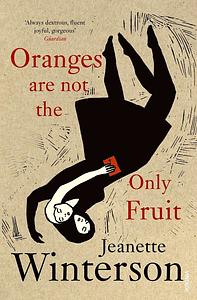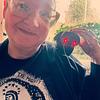You need to sign in or sign up before continuing.
Take a photo of a barcode or cover
I have sort of lost patience these days with these alternating chapter devices used to frame the narrative in some way - maybe I was over it after THE MAP OF SALT AND STARS, but here here it is again, and this time, bleh. Here we have the story of Jeanette, a child and then teenager being raised by fundamentalist Christians who later explores her homosexuality. It's interspersed with mythic tales about Jesus Christ and Sir Perceval from the Knights of the Round Table, which is meant to symbolize that she's on a quest of her own for acceptance despite her difference and rejection of the dominant ideology of her upbringing. I wanted to hear her story, but honestly would have rather she'd omitted the bits about Sir Perceval, et al. It just distracted me, but I guess that's how you get your book to be studied in college courses?
The themes I most appreciated are those about never trusting the storyteller - she reminds us a few times that "(v)ery often history is a means of denying the past" - as well as the hypocrisy of modern religion and the pressures of conformity. Nicely done, Ms. Winterson.
I'm glad I read it, particularly in context of my self-imposed project to read more by writers offering different points of view. Written in 1985, it's a quintessential queer coming-of-age novel (or memoir? I think?) and I think Jeanette Winterson is right, as she says on her website, that it's "for anyone interested in what happens at the frontiers of common-sense."
Format: NYPL e-book, via Kindle/Libby
Read for:
2020 Reading Women Challenge Prompt 23 - By an LGBTQ+ author
2020 POPSUGAR Reading Challenge Prompt 6 - A bildungsroman
2020 POPSUGAR Summer Reading Challenge Prompt 5 - A book about an LGBTQ+ protagonist
The themes I most appreciated are those about never trusting the storyteller - she reminds us a few times that "(v)ery often history is a means of denying the past" - as well as the hypocrisy of modern religion and the pressures of conformity. Nicely done, Ms. Winterson.
I'm glad I read it, particularly in context of my self-imposed project to read more by writers offering different points of view. Written in 1985, it's a quintessential queer coming-of-age novel (or memoir? I think?) and I think Jeanette Winterson is right, as she says on her website, that it's "for anyone interested in what happens at the frontiers of common-sense."
Format: NYPL e-book, via Kindle/Libby
Read for:
2020 Reading Women Challenge Prompt 23 - By an LGBTQ+ author
2020 POPSUGAR Reading Challenge Prompt 6 - A bildungsroman
2020 POPSUGAR Summer Reading Challenge Prompt 5 - A book about an LGBTQ+ protagonist
Pročitala sam par jako lijepih misli odnosno rečenica o različitim životnim temama. Ovo je, bez sumnje, jedno dosta kvalitetno književno djelo koje govori o odrastanju, traženju sopstvenog puta koji se razmimoilazi od utabanih staza okoline. Stil pisanja je također zanimljiv, ali ja se nikako nisam uspjela povezati sa likovima. Iako sam dala samo 3 zvjezdice (bila sam iskrene prema sebi, nisam uživala u ovom romanu!) preporučujem čitanje svima koji vole sociološke teme a naročito one koje govore o mladim osobama u sukobu sa učmalom, izuzetno konzervativnom sredinom u kojoj je sve što je drugačije automatski satanizirano, osuđeno i odbačeno.
I didn't understand a lot of this book. The main story was supplemented with fairy tales, which must have been there to illustrate a point, but I just didn't get it. Some of the prose didn't make much sense either. I got the main idea of the story, but some of the words that the author put together into sentences just didn't form comprehensible ideas for me. I've never been very good at poetry; perhaps that was my problem with this one.
From page 89:
Here is a table set at feast, and the guests are arguing about the best recipe for goose. Now and again a tremour shakes the chandelier, dropping tiny flakes of plaster into the sherbert. The guests look up more in interest than alarm. It's cold in here, very cold. The women suffer most. Their shoulders bared and white like hard-boiled eggs. Outside, under the snow, the river lies embalmed. These are the elect, and in the hall an army sleeps on straw.
From page 89:
Here is a table set at feast, and the guests are arguing about the best recipe for goose. Now and again a tremour shakes the chandelier, dropping tiny flakes of plaster into the sherbert. The guests look up more in interest than alarm. It's cold in here, very cold. The women suffer most. Their shoulders bared and white like hard-boiled eggs. Outside, under the snow, the river lies embalmed. These are the elect, and in the hall an army sleeps on straw.
I enjoyed the parables throughout and the early, vivid descriptions of Jeanette's mum and her own idiosyncrasies. The crisis at the end was kept at a distance and it felt strangely unemotional.
emotional
reflective
i should probably contemplate more on the symbols & yadda yadda but i still rly enjoyed this, even before i try to intellectualize it. i was highlighting entire paragraphs to revisit.
Non è un brutto libro, ma mi aspettavo qualcosa di più, soprattutto per quanto riguarda la scrittura.
emotional
funny
mysterious
reflective
fast-paced
Plot or Character Driven:
Character
Strong character development:
Yes
Loveable characters:
Yes
Diverse cast of characters:
No
Flaws of characters a main focus:
Complicated








